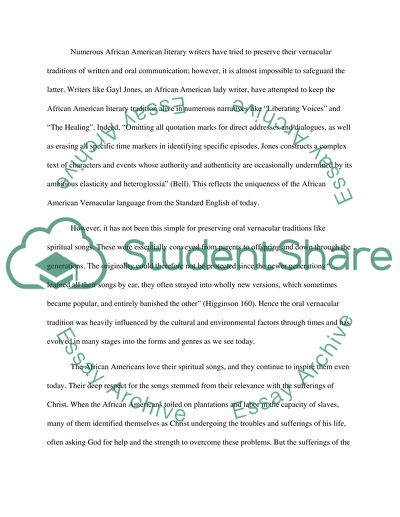Cite this document
(“African American Vernacular Tradition Focuses on Spirituals Songs Essay”, n.d.)
Retrieved de https://studentshare.org/history/1432438-african-american-vernacular-tradition-focuses-on
Retrieved de https://studentshare.org/history/1432438-african-american-vernacular-tradition-focuses-on
(African American Vernacular Tradition Focuses on Spirituals Songs Essay)
https://studentshare.org/history/1432438-african-american-vernacular-tradition-focuses-on.
https://studentshare.org/history/1432438-african-american-vernacular-tradition-focuses-on.
“African American Vernacular Tradition Focuses on Spirituals Songs Essay”, n.d. https://studentshare.org/history/1432438-african-american-vernacular-tradition-focuses-on.


